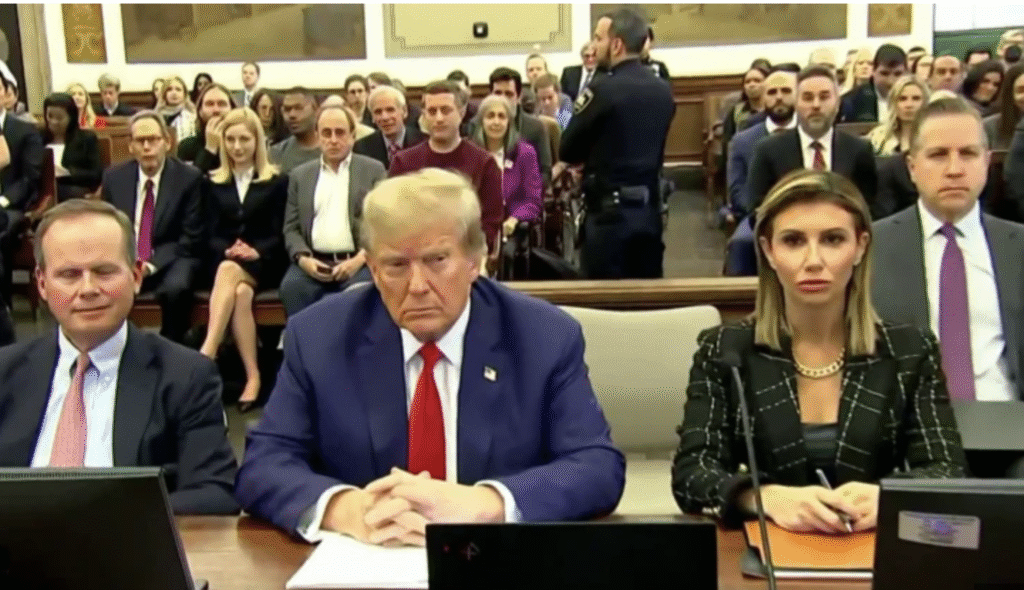
New York — A five‑judge panel of New York’s Appellate Division (First Department) has thrown out the massive monetary penalty imposed on President Donald Trump in the state’s civil fraud case, finding the disgorgement order “excessive” under the Eighth Amendment. The ruling, issued Thursday, strikingly reshapes the case that had ballooned to more than $515 million with interest, and leaves a clear path for further appeals to New York’s highest court.
What the court decided
- Disgorgement/monetary penalty: Vacated in its entirety as an excessive fine. The court concluded that directing Trump and co‑defendants to pay nearly half a billion dollars violated the U.S. Constitution’s Excessive Fines Clause.
- Injunctive relief: The panel indicated that certain behavior‑modifying injunctions aimed at corporate practices were appropriate, even as it rejected the money judgment. (Those bans and monitorships had been paused during the appeal.)
- Next steps: The decision keeps the door open for additional review—by the New York Court of Appeals—while dissolving the immediate threat of collection on the disgorgement. Trump’s previously posted $175 million bond forestalled collection while the appeal was pending.
How we got here
New York Attorney General Letitia James sued in 2022 under Executive Law § 63(12), a powerful state statute often used to police “repeated fraudulent or illegal acts.” After a bench trial, Justice Arthur Engoron found Trump had inflated asset values and, in early 2024, imposed a penalty initially pegged around $355 million, which with interest swelled above $515 million; he also ordered leadership bans and other injunctive remedies.

New York State Attorney General Letitia James campaigned on promise to take down President Trump by any means necessary.
Trump appealed, arguing that (1) no lender lost money, (2) the Attorney General stretched § 63(12) beyond its proper scope, (3) the disgorgement was unauthorized or disproportionate, and (4) the penalty violated the Eighth Amendment. Several Republican‑led states filed amicus briefs supporting the excessive‑fines argument.
Today’s ruling—after an unusually long deliberation period for the First Department—adopts the excessive‑fines critique and erases the money judgment. (Reporting earlier this week highlighted how rare such internal divisions and delays are for this court.)
Why the Excessive Fines Clause matters here
The Excessive Fines Clause applies to state actions, including civil sanctions, via Timbs v. Indiana (2019). In Timbs, the U.S. Supreme Court unanimously held that states cannot impose grossly disproportionate financial penalties. That constitutional guardrail now anchors the appeals court’s conclusion that New York’s disgorgement order went too far.
Critics’ case: why many call the lawsuit a “sham”
From the outset, critics argued that New York brought a politicized, victim‑less fraud case: lenders were sophisticated, performed their own valuations, were repaid, and did not complain of losses; yet the state sought a sweeping corporate death‑penalty‑style remedy. Business‑law commentators warned the case, if upheld, would chill private enterprise by punishing negotiations that harmed no counterparties. Today’s ruling vindicates the core of that critique by rejecting the most punitive financial sanction as unconstitutional.
Republican attorneys general likewise contended that using § 63(12) to extract a massive disgorgement where no consumer injury was shown transformed the statute into a blunt political instrument. Their filings emphasized that punishment must be proportional and tied to demonstrable harms—principles the appellate court’s decision echoes.
What still stands—and what could come next
- Fraud findings & injunctions: The court signaled that targeted injunctive relief to constrain business practices can remain—a point the Attorney General will lean on as she considers next steps. (Any renewed attempt at monetary sanctions would face strict proportionality limits.)
- Further appeals: Either side can seek leave to appeal to the New York Court of Appeals. Given the stakes—for Trump, for the AG’s office, and for the future use of § 63(12)—a petition is highly likely.
- Broader impact: The ruling will shape how New York (and other states) deploy civil‑fraud statutes in high‑profile business cases. It underscores that even civil “disgorgement” risks crossing into punitive territory barred by the Eighth Amendment—especially where the record shows no concrete losses to counterparties.
Bottom line
The appeals court didn’t just trim Trump’s penalty—it wiped out the money judgment as unconstitutional, dramatically undercutting the theory that justified the case’s most severe sanction. For supporters of the President, this outcome supports the view that the New York proceeding was overreaching and political. For state regulators, it’s a sobering reminder that civil enforcement powers meet constitutional limits, and that large “disgorgements” must be tied to real harms and calibrated to pass Eighth Amendment scrutiny.

Leave a Reply